Ever noticed how some kitchen countertops feel just right when you run your hand across them?
That perfect balance isn’t by chance—it’s all about thickness.
Picking the right countertop thickness matters more than most people realize. It affects how your kitchen looks, how durable your surface will be, and how much your project will cost.
A thinner countertop might look sleek but could struggle with daily kitchen life. Go too thick, and you might spend more than needed without getting real benefits.
Kitchen decisions can be tough, especially when they involve materials you’ll use every day for years.
Ready to figure out which thickness makes sense for your home, style, and budget?
Let’s talk about what really matters when choosing a countertop that works as hard as you do.
Why Countertop Thickness Matters?
Countertop thickness plays a crucial role in both functionality and design. A thicker countertop offers superior durability, making it more resistant to cracks, chips, and daily wear.
Thinner countertops provide a sleek, modern look but may require additional support to prevent breakage.
The thickness also affects material selection, as certain stones benefit from added depth for extra strength, while others remain sturdy even in thinner slabs.
Additionally, weight and cost vary with thickness—thicker countertops are heavier and more expensive, whereas thinner ones can be budget-friendly but may need reinforcement.
Whether aiming for a bold statement or a minimalist design, selecting the right thickness ensures a balance between style, durability, and practicality.
Common Countertop Thickness Options
Countertops come in various thicknesses, with the most common options being 1 cm, 2 cm, and 3 cm. Each thickness offers different levels of durability and structural support, influencing its ideal use.
1 cm Thickness
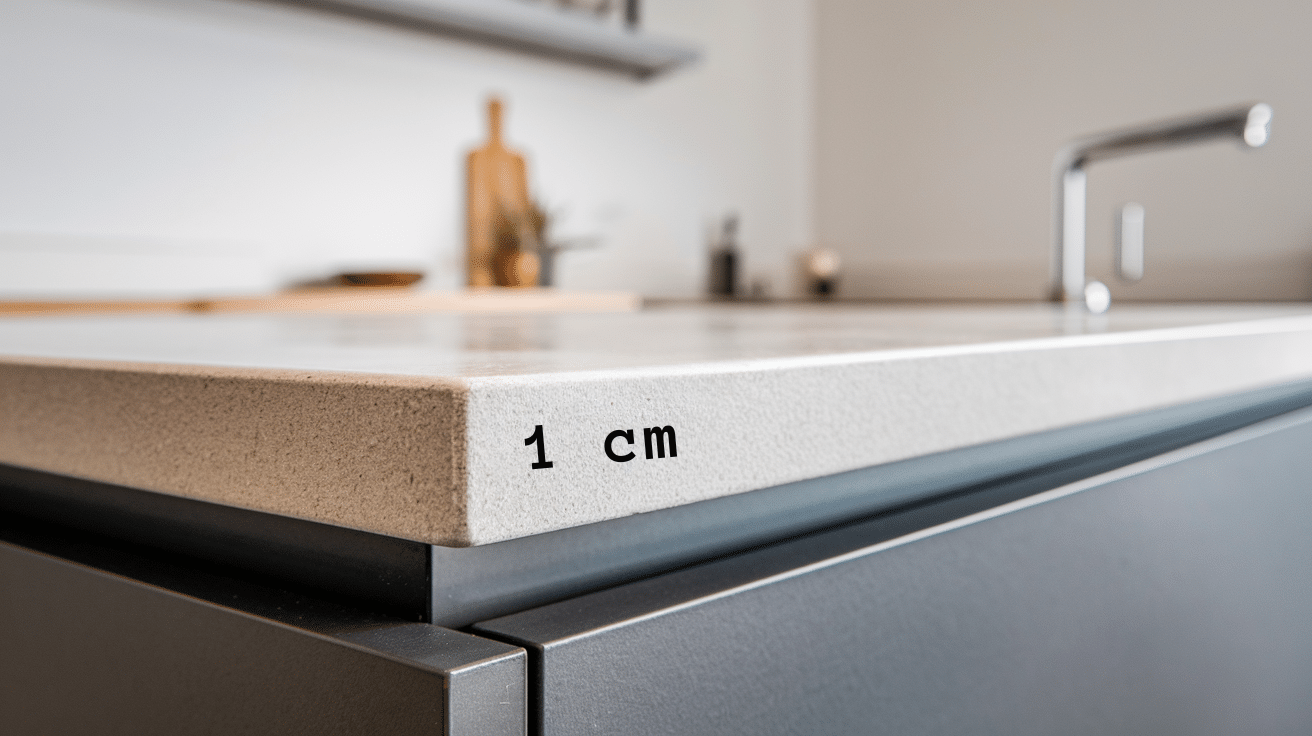
A 1 cm countertop is a sleek and lightweight option that offers a contemporary appearance but requires additional reinforcement for durability.
Pros: This option provides a refined, modern look while being easy to handle and install, making it a cost-effective choice for decorative applications. Its slim profile allows for seamless integration into minimalist designs without adding unnecessary weight.
Cons: Due to its thin structure, it is more prone to chipping, cracking, and breakage, especially in high-use areas. Additional backing or support is often necessary, which can increase overall installation costs.
2 cm Thickness
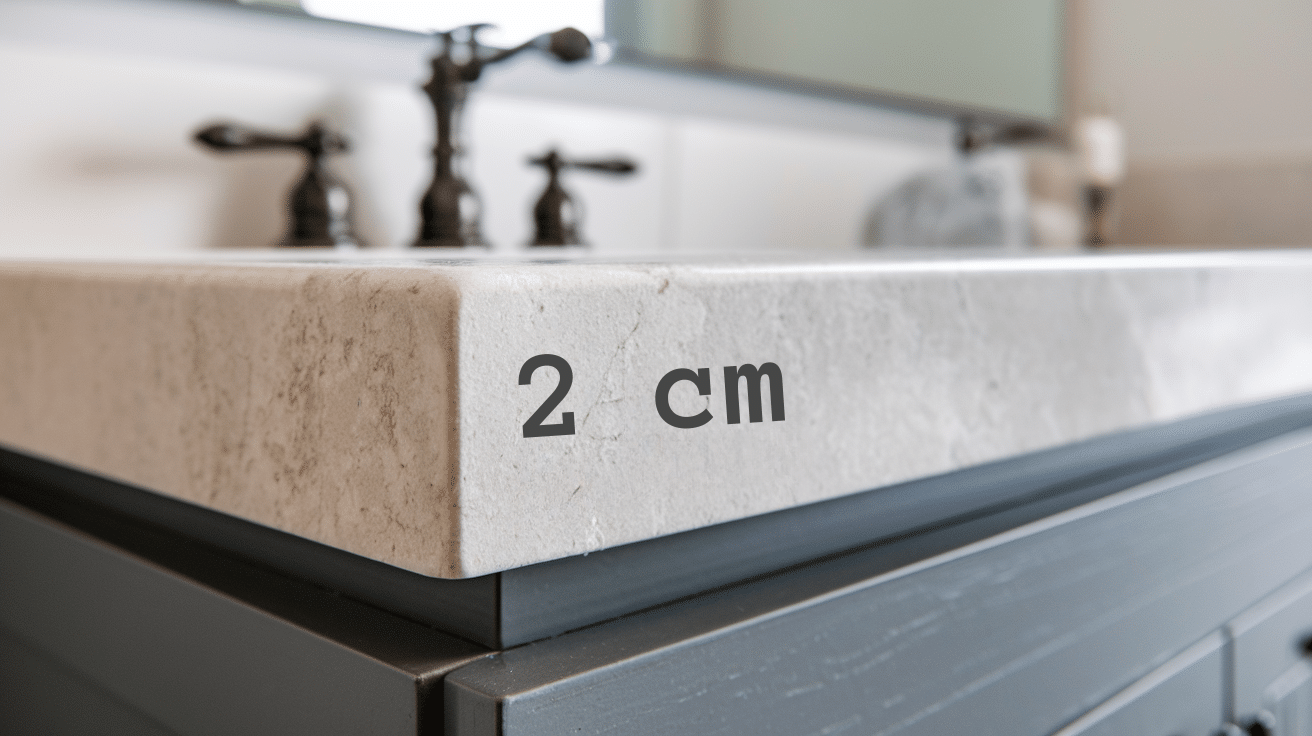
A 2 cm countertop is a versatile choice that balances strength and style, making it a popular option for both contemporary and classic designs.
Pros: It provides a refined look with sufficient durability while being lighter than thicker slabs, reducing strain on cabinetry and installation. Its adaptability allows it to complement various design styles without overpowering the space.
Cons: While sturdier than a 1 cm option, it may still require additional reinforcement for long overhangs or high-traffic areas. The thinner profile may not provide the bold, substantial appearance preferred in certain design styles.
3 cm Thickness
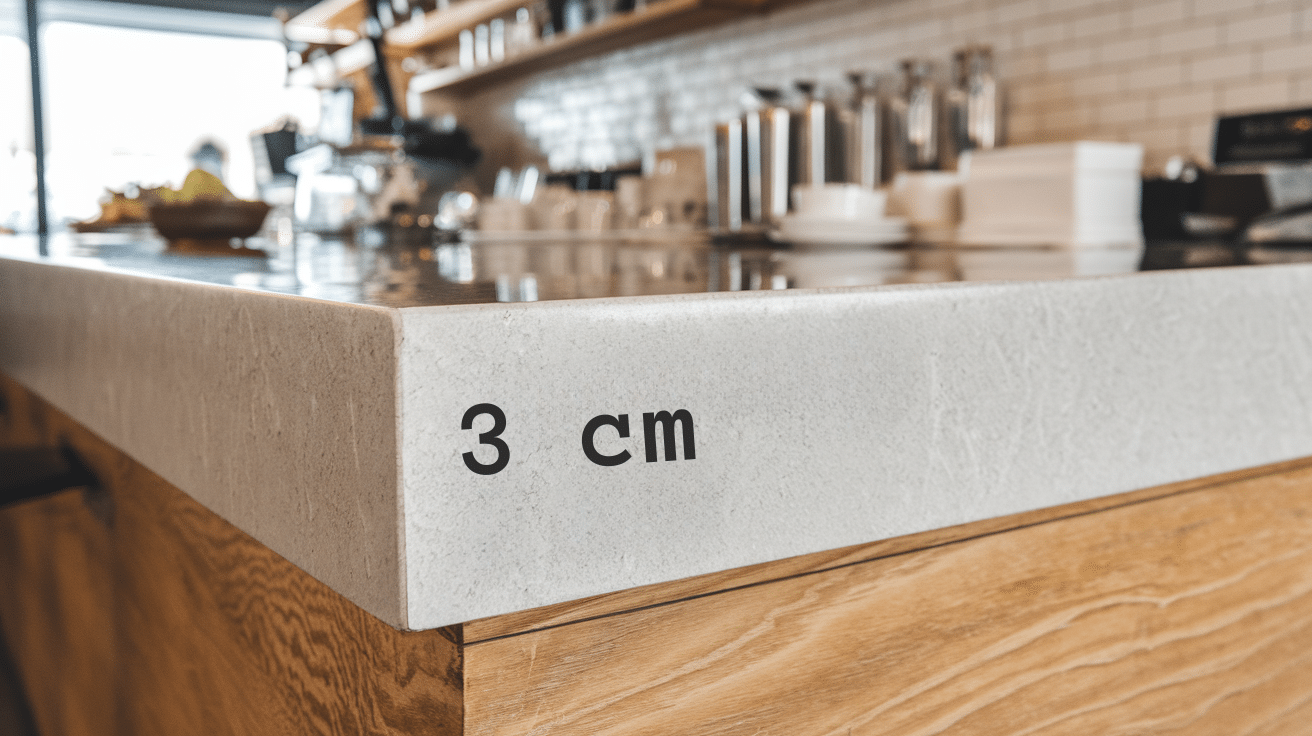
A 3 cm countertop is a premium choice that provides a bold, substantial look while offering superior durability for high-use spaces.
Pros: This thick slab is highly resistant to damage, eliminating the need for additional support while enhancing the space with a luxurious and substantial appearance. Its durability ensures longevity, making it a great long-term investment.
Cons: The added weight requires sturdy cabinetry and professional installation, which can increase material and labor costs. It may not be ideal for those seeking a lightweight or budget-friendly option due to its higher expense.
Choosing the Right Countertop Thickness for Each Space
The ideal countertop thickness depends on the space, usage, and material. Below is a breakdown of the best options for kitchens, bathrooms, and commercial spaces.
Countertop for Kitchens
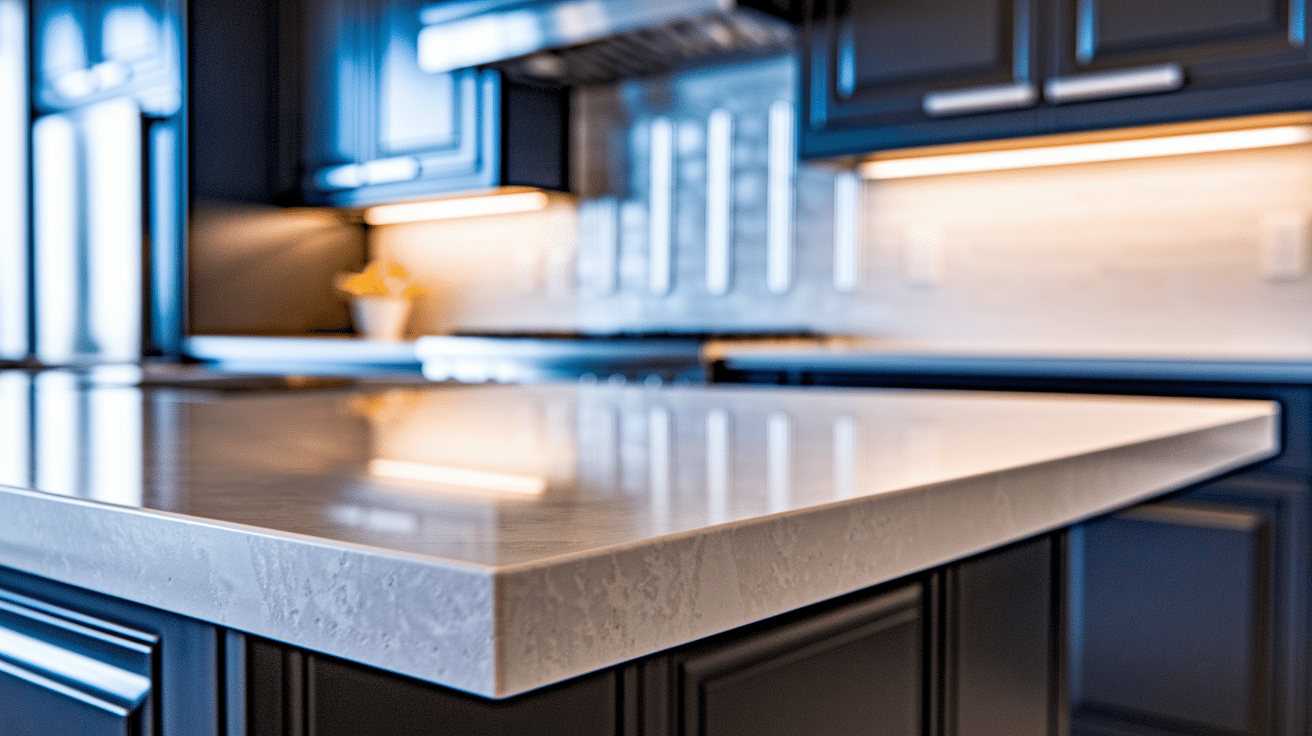
Kitchen countertops endure heavy use, requiring a strong and durable surface that also complements the kitchen space.
- Recommended Thickness: 3 cm is the best choice, providing superior durability and resistance to impact.
- Reasons to Choose This Thickness: It offers structural integrity, supports various edge profiles, and withstands daily wear and tear.
- Material Type:Quartz is the most suitable material for kitchens due to its non-porous nature, resistance to stains, and low maintenance.
Countertop for Bathrooms
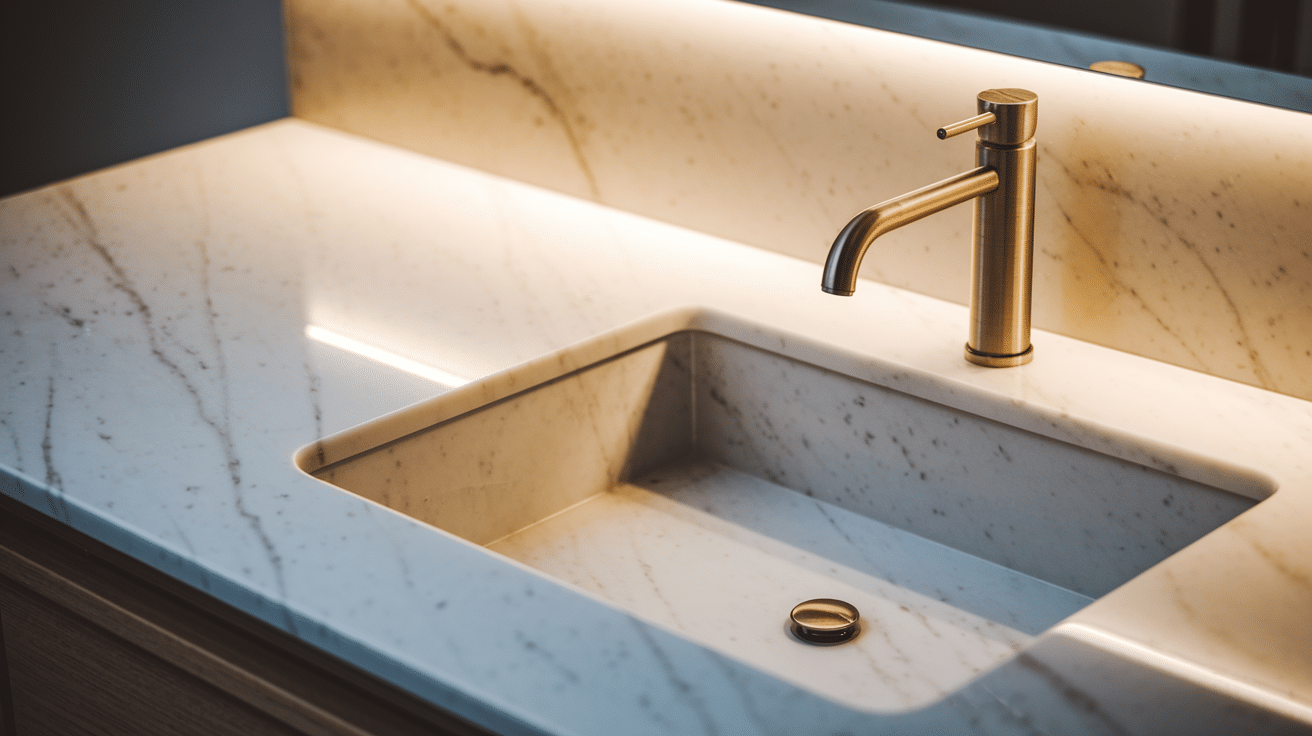
Bathroom countertops experience less strain than kitchen surfaces, so a thinner option is often sufficient while maintaining durability and style.
- Recommended Thickness: 2 cm is the most suitable, balancing visual appeal with practicality.
- Reasons to Choose This Thickness: It provides a sleek, lightweight design that suits vanities and sinks while reducing material costs.
- Material Type:Marble is the best material for bathrooms, offering a luxurious look with good water resistance when properly sealed.
Countertop for Commercial Spaces
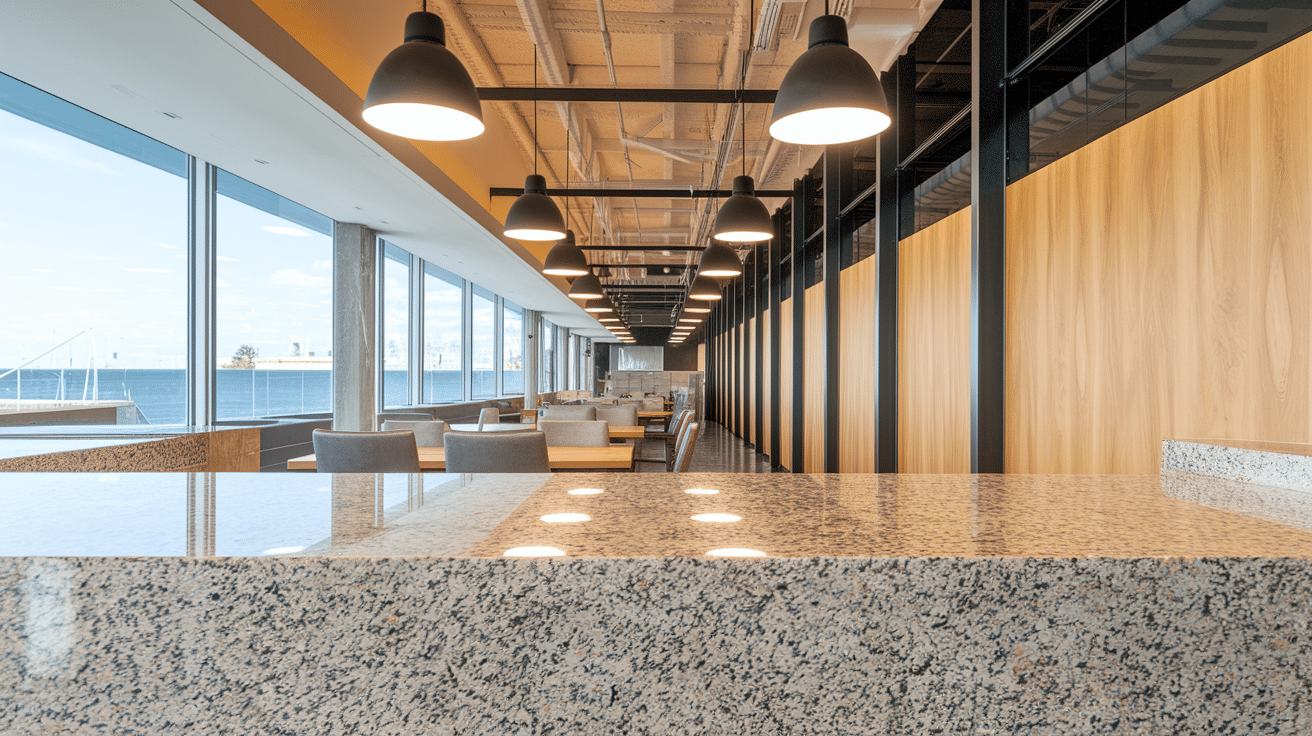
Commercial countertops must handle constant use, making durability the top priority. A thicker option is ideal for high-traffic areas.
- Recommended Thickness: 3 cm or more is ideal for commercial settings to ensure long-lasting performance.
- Reasons to Choose This Thickness: It enhances durability, resists chipping and cracking, and creates a professional, high-end appearance.
- Material Type:Granite is the best option for commercial spaces due to its extreme durability, scratch resistance, and ability to withstand heavy impact.
Choosing the right thickness ensures both functionality and longevity while complementing the space’s design.
Factors to Consider When Choosing Countertop Thickness
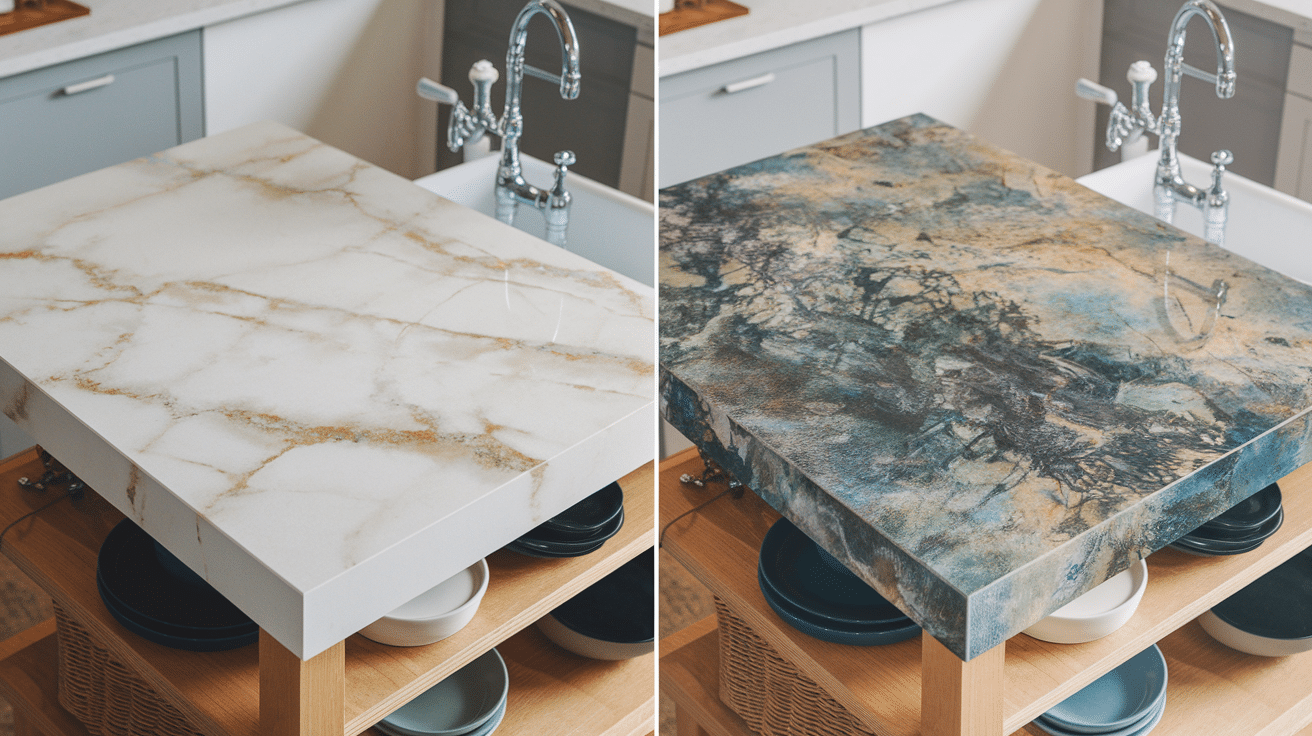
Selecting the right countertop thickness requires careful evaluation of multiple factors, including material choice and design preferences. Below are some essential considerations to keep in mind:
1. Material Type
The type of material determines the available thickness options, durability, and maintenance needs. Each material has unique characteristics that impact functionality.
| Material | Common Thickness | Key Features | Support & Maintenance |
|---|---|---|---|
| Granite & Marble | Usually thicker | Natural and luxurious, prone to chipping if too thin | Requires sealing; may need plywood backing for thin slabs |
| Quartz | Available in various thicknesses | Durable, non-porous, resists stains and scratches | Low maintenance, no sealing required |
| Wood & Laminate | Often thinner but can be customized | Warm, natural look but can scratch easily | Needs extra reinforcement and regular upkeep |
2. Stylistic Preferences
Countertop thickness directly impacts the overall style and appearance of the space.
- Thinner slabs (1-2 cm): These create a modern, lightweight, and minimalist look. They work well in contemporary spaces and can be paired with waterfall edges for a sleek finish.
- Thicker slabs (3 cm or more): These provide a bold, substantial look, often preferred in traditional or high-end designs. They add depth and enhance the luxurious appeal of the space.
3. Weight and Structural Support
Thicker countertops are heavier and require strong cabinetry for proper support. If the cabinets are not designed to handle the weight, additional reinforcement may be necessary to prevent structural damage.
Lighter materials, such as laminate, may not require as much support but need extra stability to prevent sagging over time.
4. Cost and Budget
The cost of countertops varies based on thickness, material, and installation complexity. Thicker slabs are generally more expensive due to the extra material and added labor costs.
Thinner options can be more budget-friendly, but they may require reinforcements that increase overall expenses.
5. Durability and Maintenance
Thicker countertops are more resistant to cracks, chips, and overall wear, making them ideal for high-traffic areas. Thinner slabs can still be durable but may be more prone to damage if not supported properly.
The choice of material also affects maintenance—natural stone requires periodic sealing, while engineered surfaces like quartz are easier to maintain.
Finding the Best Fit for Your Needs
In the end, picking the right countertop thickness comes down to real life – your kitchen, your habits, your budget.
The standard options work for most homes, but you might go thinner for a modern look or thicker for something more substantial.
Trust what feels right when you touch it.No need to overthink this. A countertop that looks good to you, holds up to your cooking style, and fits your budget is the right one.
Take your time. Feel the different samples. Picture morning coffee and meal prep on that surface.
Your countertop will be the backdrop to countless family moments and everyday routines. The thickness that makes your kitchen feel like home? That’s your perfect balance.
No fancy formula is needed – just the choice that works for your life.


